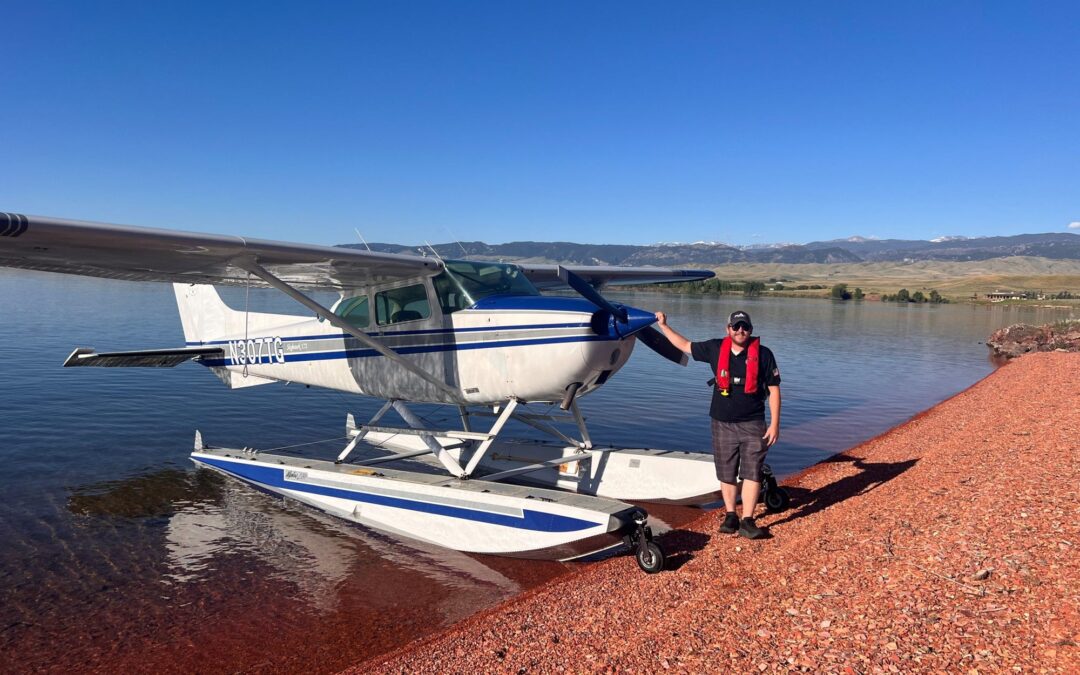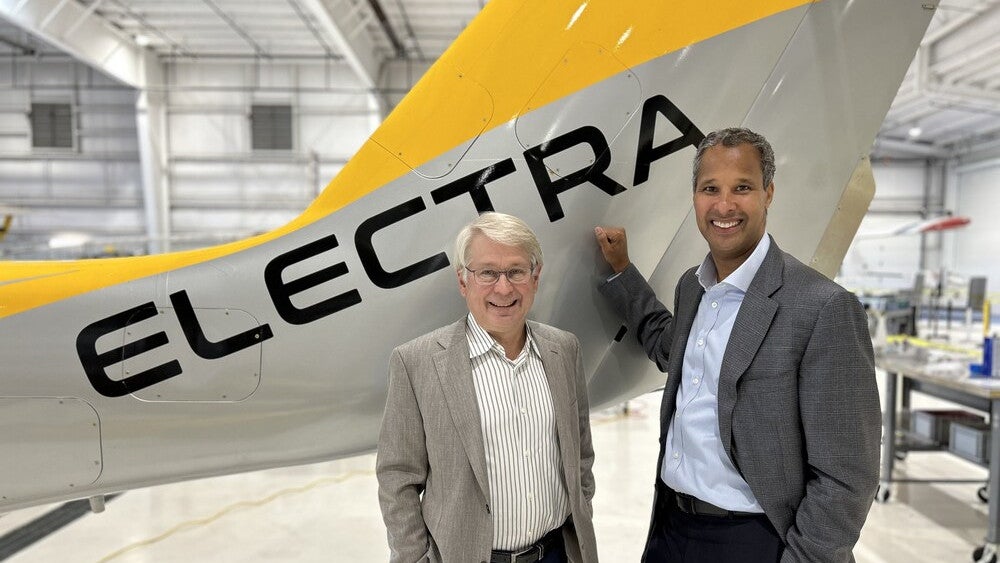One of the first questions I toss out to a prospective flight student is, “Why do you want to learn to fly?”
These getting-acquainted sessions are simply back-and-forth information swaps, providing the potential learner a chance to size me up, as well as an opportunity to let me weigh their likelihood of success.
There’s no right or wrong answer to this CFI’s question. I’m just wanting to see what motivated them to walk in the door of our little flight school. Most of the time, their reply is, “It’s just something I always wanted to do.” Maybe it’s slanted with a familial connection: “My uncle was a pilot, and I’d like to become one myself.”
If they were raised within a flying family, the son or daughter of a pilot, that information has most likely come up in the original introduction, in which case I already know I’ll be dealing with preconceived notions implanted by lifelong aerial experiences.
Only about 10 percent of my student starts involve someone set on making a career out of flying. Becoming a professional pilot is a tall ladder to climb, and if that’s their goal, we’ll work toward it from the beginning, with an increased emphasis on adherence to procedures and acquiring advanced knowledge early in the program.
But there’s nothing wrong with wanting to learn to fly just for fun. Heck, most professional aviators still find some enjoyment, even on the job. The 90 percent that will be satisfied with obtaining a private pilot certificate have no reason to dishonor their intention, and there’s always the chance that completing that first step will spark a desire to make a life in the air. If not, well and good.
[Image: Adobe Stock]
We Were Born with It
Flying an airplane is, for many, a long-held dream, one that may be more primeval than the dreamer realizes. This morning, I was buzzed by a devoted pair of Canada geese streaking along 100 feet overhead. I defy anyone to watch their honking passage without thinking, “That’s neat. I’d like to be doing that.”
The desire to fly probably dates back to the first prehistoric cave dwellers watching soaring birds. As humans, we were born with a yearning to explore and expand, to climb a hill to see what’s on the other side (or behind), to take command of our environment by adopting the capabilities of creatures we observe.
Freedom is an aspiration expressed by many beginning learners after finding out there are thousands of airports and few restrictions on using them in this wonderful country. “You mean I don’t need permission to fly somewhere? I can just go?” expresses the novice pilot.
“That’s the way it’ll be,” I tell them, “after you’re no longer a student pilot.”
I once had to point this out to a representative of an autocratic developing country who wanted to establish a general aviation system in his nation. As we talked, I said, “After they learn to fly, you must understand, your people will start thinking about personal freedom.” Best be prepared for this, I advised him.
There are lots of reasons one might set forth on the journey to become a rated pilot. Having a good time ought to be included in any list of motives. Even if, as one of my students has declared, it’s to become a crop duster, a goal that probably had its origin in “looks like fun.”
In time, successful pilots learn that it isn’t all fun and games. Staying alive in the sometimes hostile world of the sky requires constant risk mitigation, which can be tedious.
[Learning to fly] shows that you can work toward a difficult-to-reach objective…
“Seeking a challenge” is another frequently expressed reason to learn to fly. This may come up more often in midlife when facing the reality of one’s finite existence. It is indeed satisfying to overcome obstacles and reach a desired outcome, and the art of taking an aircraft up, completing a mission, and bringing it safely back to earth is something I never tire of doing, even after 60-plus years.
When mentoring newly rated flight instructors about to start teaching students, I begin by reminding them what we’re doing here. “Remember,” I’ll say, “we’re really in the business of making dreams happen, not just delivering training. We’re going to make your dream of learning to fly come true, safely and expeditiously.”
[Image: Adobe Stock]
Having a Better Option
“I want to be able to travel” often comes up when I ask about the aspiring pilot’s motivation. Flying one’s own airplane, I agree, is a great way to see sights and move around quickly, even though I’m compelled to let them know that an airplane is not a substitute for an automobile. What the personal plane offers, I explain, is another option in addition to driving or riding public transport. Properly used, it lets us make 200-mile day trips instead of 100-mile ones, allowing us to avoid a night on the road, getting us back to the family on our own schedule.
The option to fly ourselves is satisfying, even if we sometimes opt for another means of travel when a demanding schedule must be kept. It’s a good feeling to pull the airplane keys out of my pocket and know that I could use them to cross two states by lunchtime. Like having a motorcycle in the garage, my plane represents an alternative to interstate highway tedium.
Not always can we fly the trip, but when it works, it sure beats being stuck in the traffic down below.
As I said, there are lots of reasons to want to learn to fly. Personal development is perhaps not always expressed at the outset, but it doesn’t take long for learners to start seeing life from another perspective.
“I never realized how many lakes and ponds there are!” or “How far can we see from up here?” are common remarks of wonderment expressed by new-to-aviation individuals. Flying does change one’s perspective on the scale of life, when we compare our mundane ground-bound surroundings to the much larger world seen from aloft. It can be properly humbling at times, which isn’t a bad thing in this modern, always-in-charge, high-tech world.
There are lots of reasons to become a pilot, and some of them won’t make sense to conventional thinkers. [Photo: LeRoy Cook]
You Can Be Justly Proud
In only a few other activities can a person be forced to rely totally on their own resources for survival.
If that aircraft and its occupants are going to be safely brought back to terra firma, it’s because the decisions, abilities, and training of the pilot have responded to the task—Garmin’s Autoland system notwithstanding. Such an accomplishment brings internal satisfaction and external respect from the other participants.
I’ve frequently told an audience of inquiring prospects that having a private pilot certification on one’s résumé, for whatever field of endeavor you might be applying for, is yet another worthwhile accomplishment in your list of attainments, one that might look good to a discerning employer. It shows that you can work toward a difficult-to-reach objective, complete a set of tasks, and, through diligence, achieve a goal. That says a lot about an individual.
I once had a new entrant counter my question with a riposte: “Why did you want to fly?” In my case, I told him it was because everybody else I knew…didn’t. At age 11, I was already thinking about how I was going to be different from others, to walk my own path, to find something that defined me.
It could have been other unconventional pursuits, but it was flying that fascinated me.
Why fly? There are lots of reasons, and maybe they won’t make sense to those bound up in conventional thinking. But we of the fraternity of flyers will understand and welcome you should you choose to join us.
The post Why Fly? appeared first on Plane & Pilot Magazine.




